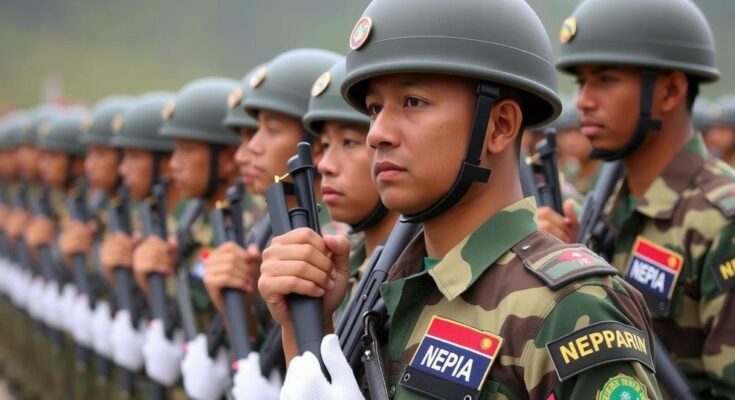General Upendra Dwivedi, Chief of the Indian Army, stated that the lack of new Nepali Gorkha recruits has not compromised the army’s strength or operational readiness. He addressed the recruitment halt, rooted in the 1947 tripartite agreement, and confirmed that India has submitted a proposal to Nepal to revive the recruitment process, highlighting the importance of this longstanding tradition. Despite the challenges, military relations between India and Nepal remain robust and vital.
General Upendra Dwivedi, the Chief of the Indian Army, addressed concerns regarding the absence of fresh Nepali Gorkha recruits, stating that, despite the challenge of not having new recruits for over four years, the overall operational preparedness and strength of the army remain unaffected. The recruitment halt, rooted in the longstanding 1947 tripartite agreement among India, Nepal, and the United Kingdom, has created a significant gap in the esteemed tradition of Nepali Gorkha recruitment that has historically enriched the Indian Army. General Dwivedi indicated that a proposal has been submitted to the Government of Nepal regarding the resumption of recruitment, underscoring India’s commitment to proceeding with respect for Nepal’s sovereignty.
He acknowledged the value that the Nepali Gorkhas contribute to the army and reaffirmed the robust military relationship between the two nations, despite the recruitment standstill. The Gorkha battalions, renowned for their discipline and bravery, have played a vital role in safeguarding India’s borders and participating in crucial military operations. The ongoing camaraderie was exemplified through General Dwivedi’s visit to Nepal in 2024, where he was honored with the rank of General in the Nepali Army, and the subsequent visit of General Ashok Raj Sigdel of the Nepali Army to India, where he received a similar honor.
The recruitment of Nepali Gorkhas into the Indian Army has been a tradition steeped in history and mutual respect, emphasized by the 1947 tripartite agreement, which facilitated thousands of Nepali youths enlisting in the Indian Gorkha regiments. This collaborative relationship has greatly contributed to the military’s capabilities, specifically through the esteemed Gorkha battalions known for their exceptional discipline and valor. However, the suspension of recruitment activities, primarily due to the COVID-19 pandemic, has led to concerns over a potential void in this vital operational segment, prompting discussions about restoring this alliance with sensitivity to Nepal’s national integrity.
In conclusion, while the absence of fresh Nepali recruits poses a challenge to the Gorkha battalions, General Upendra Dwivedi has clarified that the Indian Army’s operational effectiveness remains intact. The longstanding relationship with Nepal is anticipated to resume as efforts are underway to restart recruitment, demonstrating a commitment to the historical ties that bind the two nations. The honorary exchanges between the military leaders further illustrate the resilience and strength of the military cooperation despite current recruitment difficulties.
Original Source: www.hindustantimes.com




